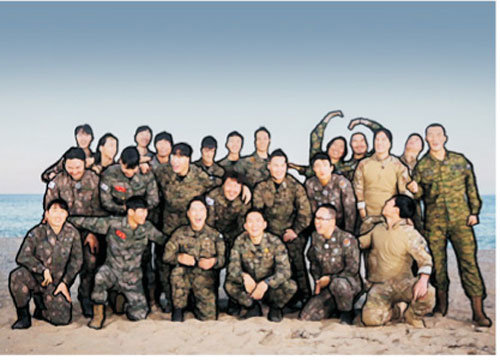Dignity in leadership
Dignity in leadership
Posted August. 02, 2021 07:26,
Updated August. 02, 2021 07:26


Lebanese-American essayist Nassim Nicholas Taleb writes in his book titled “Skin in the Game” that you are nothing if you are not responsible for your judgement.
This phrase reminds me of South Korean entertainment show “The Steel Troops,” which has just finished its final episode being well-received by so many viewers. Some describe it as the cutthroat competition among ex-members of the Special Forces while others call it the struggle of heroes against hardships. To me, it seems like a fable showing what leadership is supposed to be like.
Park Joon-woo, the team leader of the Army Special Warfare Command, is by far the greatest serviceman among 24 cast members of the show thanks to his ample experiences and charisma. When teammates start arguing over a chance to join a mission, he gives up on it earlier than anyone else on the team. His brave and resolute decision makes the team unite again. Jung Sung-hoon, the team leader of the Sea Salvage & Rescue Unit, candidly acknowledges that he is the weakest point of the team. His team members may become stronger and more tenacious as they feel a sense of responsibility for protecting the team leader. Jung’s team makes it to the final round contrary to everyone else’s expectations.
I learned firsthand that we can tell who has a true leadership quality when a leader should shoulder responsibilities rather than when he or she is about to make a decision. As “The Steel Troops” is a survival reality show, you can see the consequences of the wrong decision because when you fail, you should leave. Then, what is it like to be a leader in reality? Mr. Taleb warns that risks are involved in a community where people who refuse to be held accountable serve as a decision-maker. According to the author, an imbalance of responsibilities is a prevalent social phenomenon where decision-makers are unlikely to be victimized by their own mistakes. You should make a decision when you are ready to be responsible. Likewise, once you have made a decision, you should hold any responsibility arising out of your judgment. As simple as it may seem, many leaders must have a guilty conscience.
As “The Steel Troops” is over, I ask myself. Could I acknowledge my limits? Would I willingly give up on an opportunity so that someone else can grab it? No matter what decision I make, could I fully accept any responsibilities? A dignified leadership comes from a strong determination to accept any responsibility for judgement.







